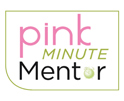
Mary Jaensch & Rachel Braun Scherl, Co-Owners, The Spark Group

The Million-Dollar Goal
By Cynthia Good
Mary Jaensch and Rachel Braun Scherl, owners of the Spark Group, took a big risk. As the only bidders, they bought the assets of Zestra out of bankruptcy for $2.5 million. Zestra, a topical potion made from evening primrose, borage oils and extracts, initially billed as the female version of Viagra, has been repositioned under their leadership.
Small businesses find it more difficult than ever to get the funds they need. In 2009, only 40 percent of companies that applied for a loan received the requested amount. Rachel and her partner raised $10 to $15 million to grow the company from venture capital.
Here, Rachel tells PINK how she and her business partner plan to grow the product into a $100 million business – while changing the conversation about female sexuality.
PINK: What’s been your biggest business challenge?
RBS: Raising money in this environment is awful. And there’s a real challenge in getting the message out in the media. It’s an enormous double standard. We’re comfortable talking about [products like] Viagra – but this hasn’t changed the discourse on female sexuality.
PINK: You and Mary first collaborated 12 years ago with the creation of the Jannick Group. How do you manage your partnership?
RBS: We’ve worked together for 15 years. The success of Zestra will be based on the strength of our partnership, mutual trust and respect for each other’s skills and the way we do things. Mary does the inside stuff, like operations, financials and manufacturing. I handle the outside, like marketing. But there’s tremendous crossover. We share the same office in Saddle Brook, NJ. She’s sitting six feet away from me now.
PINK: How’s Zestra doing under your leadership?
RBS: It’s about a $200 million dollar market. Repurchase rates are 70 percent. Sales are growing every month. The company that owned the product before focused on a traditional model. They were not capitalized well enough to do what they set out to do. There were no women on the team. Also, we changed how it’s sold from retail to primarily direct sales.
PINK: How did you reposition the brand?
RBS: We determined that this isn’t about female sexual dysfunction. We don’t want women to feel they’re doing something wrong. For us, this is about satisfaction. It’s on how you can feel better, more effortlessly. Women need to make sure this part of their life functions as highly as everything else. Our product, according to a recent clinical study, increased arousal, desire and satisfaction in seven out of 10 women.
PINK: How have you grown the company in two years?
RBS: We started with just the two of us. Today we have 11 employees. Plus call centers. We’re increasing sales every month. We have great employees, for instance, we’ve known our VP of marketing for 20 years.
PINK: What’s your management style?
RBS: I’m incredibly high energy, so I want to see results. We motivate employees by sharing the highlights. We share a lot of information so everyone knows what’s going on and when the company does well, everyone knows they will too. We get as much information as quickly as we can and we are comfortable taking risks. We are open to new ideas and new thoughts. We are efficient in our decision making and how we spend our time.
PINK: What’s your success secret?
RBS: Incredibly hard work, laser-like focus, our partnership and endurance.
PINK: What’s the best business advice you’ve received?
RBS: The advice I got from Mary when we met – Do work you love, with people you love and respect. The advice I got from my dad was to get up every morning and focus on the two to three things that have the potential to drive your business. Or his favorite quote that he got from the 1976 classic “Rollerball,” in which they played to the death. “No time outs, no substitutions.”
PINK: What about Work/Life balance?
RBS: I’d say that’s a theory right now. We’ve been working at a ridiculous pace for 24 months. We work about 70 hours a week. Our calendars are totally transparent to each other. If one of us has to be at an event, we make it work. Both of our husbands are very supportive. Mary has been married for 35 years and I’ve been married for 20.
It is challenging. You can’t do this without a supportive husband and children.
PINK: How do your kids handle it?
RBS: The funniest moment was when our daughters, who’ve known each other all their lives, saw each other for the first time after we bought the business. One said to the other, “When people find out what your mother does, don’t you just want to die!?”
PINK: What does success look like?
RBS: The goal is to build a big enough business so it’s appealing for a sale, a merger or strategic partnership. Our projections are to make this a $100 million franchise over the next three to four years. We’ll do it until it’s successful. The objective is to return money to our investors, but I hope our legacy will be a product that jumpstarts a conversation to make women aware of their options. It’s a chance to create a category and conversation that doesn’t exist. We make sure the conversation is direct and authentic.














